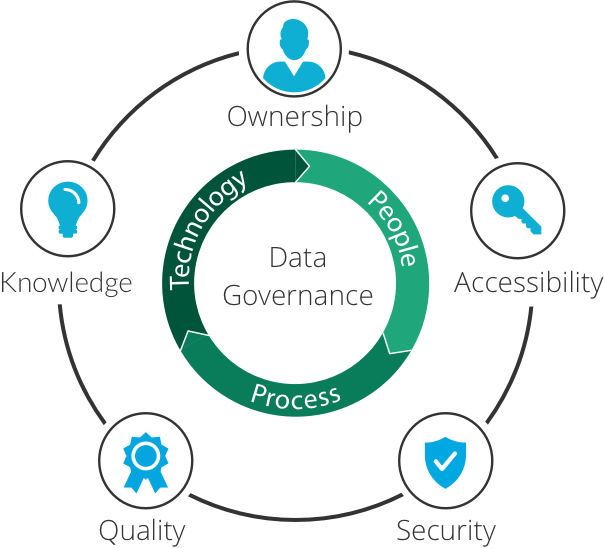Implementation of Data Governance based on Standards
Data Governance Consulting
The process by which an individual determines direction, influences a group, and directs the group toward a specific goal or mission.

The process by which an individual determines direction, influences a group, and directs the group toward a specific goal or mission.
Data, the lifeblood of modern businesses, needs robust protection and organization. Just like a well-fortified castle, your data requires a strong framework to ensure its integrity, security, and accessibility. This framework is data governance, implemented with established industry standards.

Data governance is more than just policies and procedures; it’s a holistic approach to managing your data assets. It ensures your data is:
Industry standards provide a foundation for effective data governance. These standards offer best practices and guidelines to help organizations:
Building a data governance program requires a strategic approach. Here’s a roadmap to get you started:
Investing in Your Data’s Future
By implementing data governance based on industry standards, you’re building a secure and reliable foundation for your data. This empowers data-driven decision-making, fosters collaboration, and ultimately, drives business success. Don’t let your data become a liability – make it your most valuable asset.
Contact us for a quote or in case of any urgent queries please send us an email on: [email protected]
we will get back to you right away!